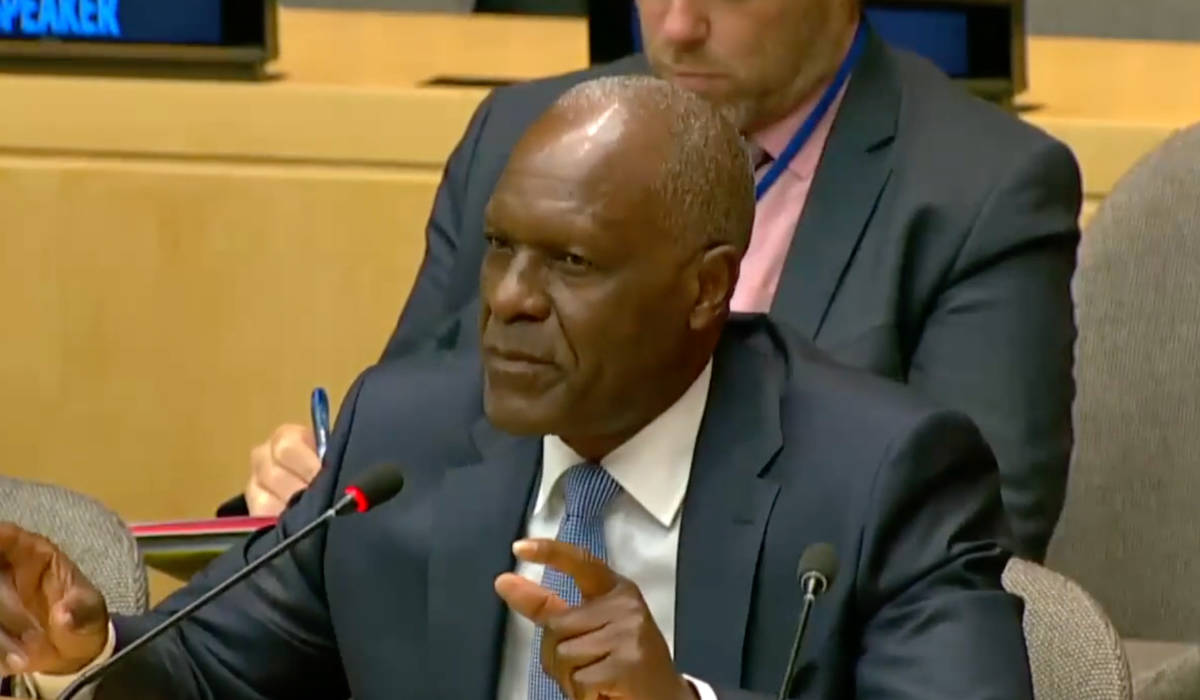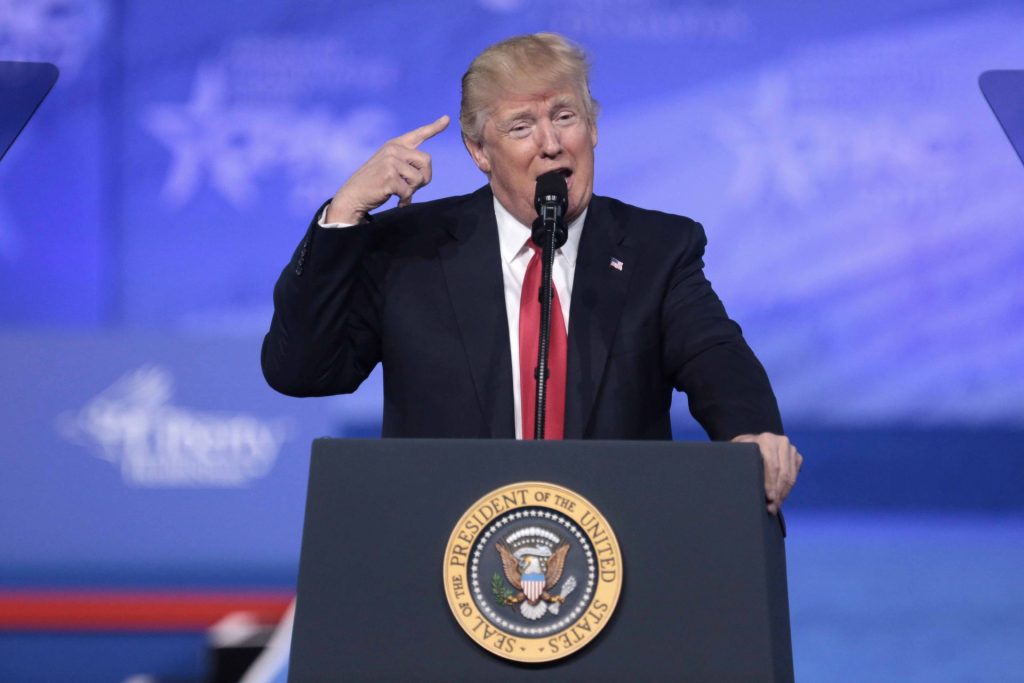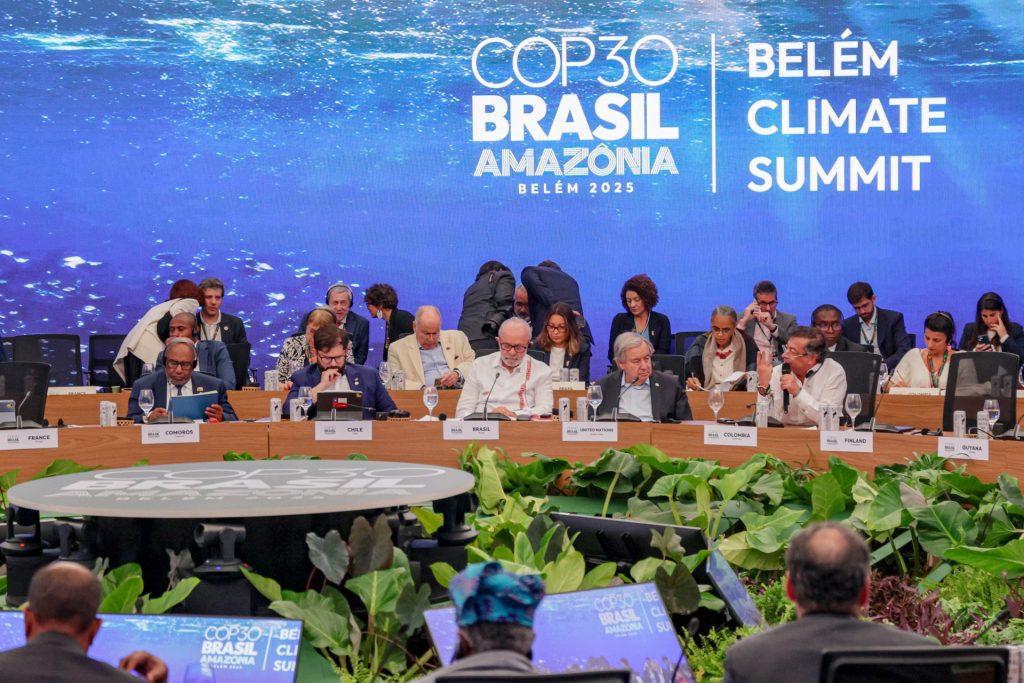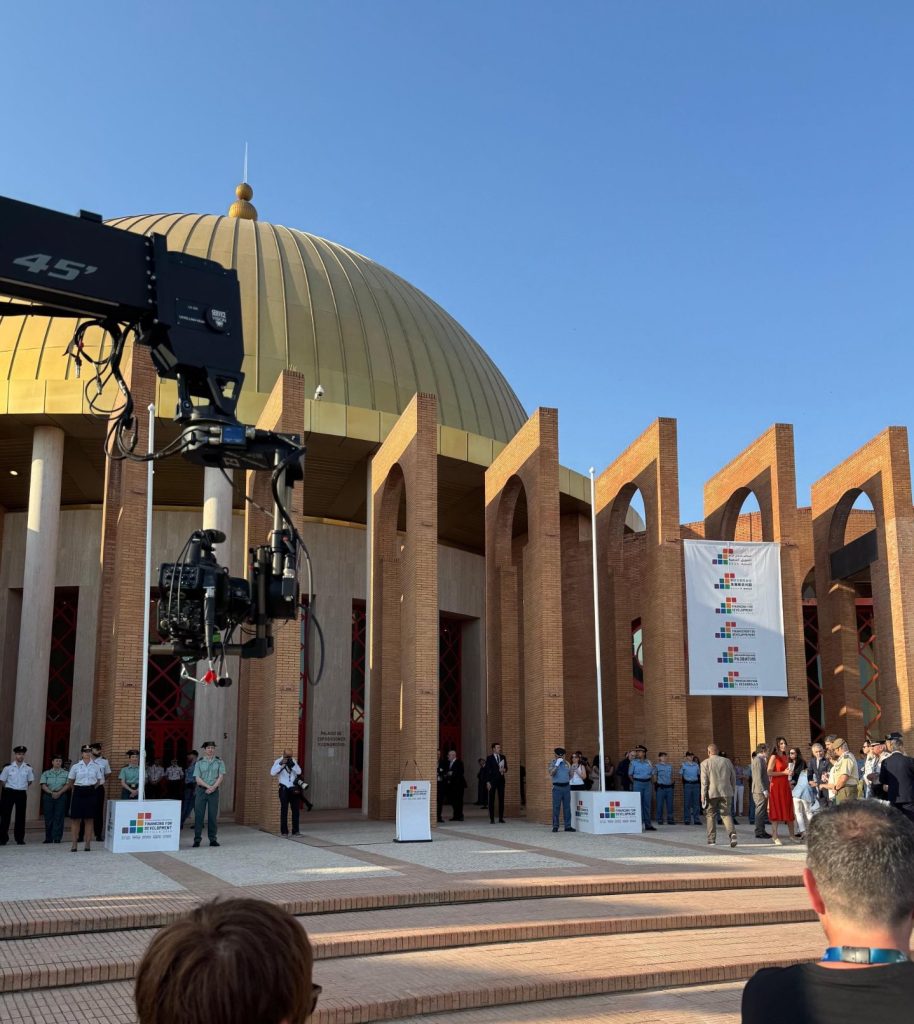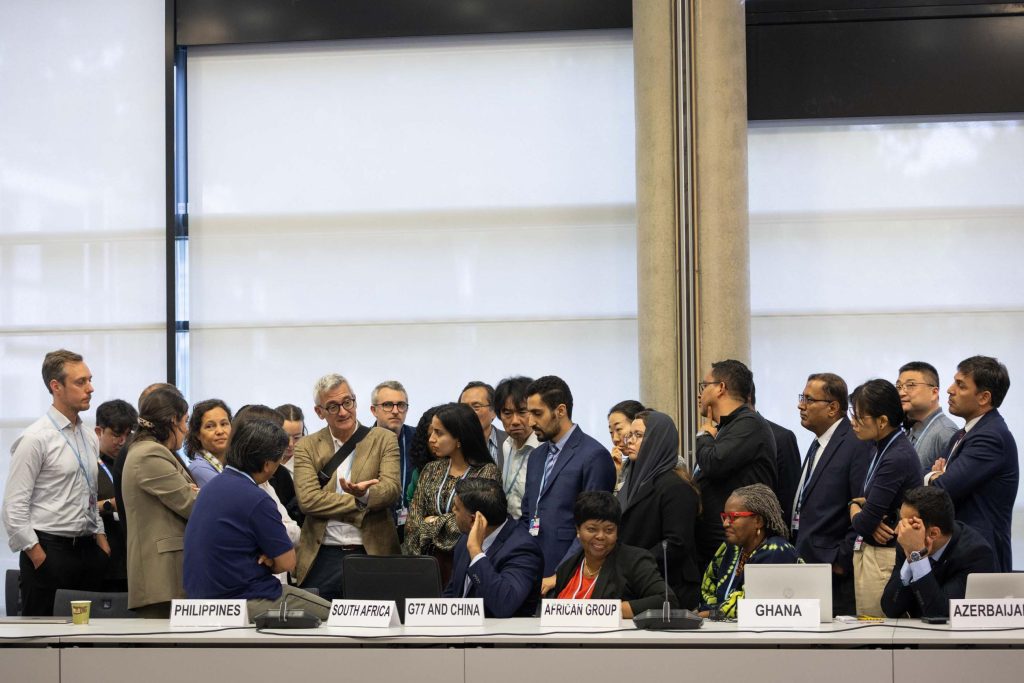At the UN General Assembly meetings this week, Heads of State have been reemphasising that no meaningful climate action or development can take place when their countries are in financial distress. Moving beyond just a call for aid and delivery of climate finance pledges, developing countries have been pushing for fundamental reforms to the global climate finance architecture at this week’s 78th meeting of the UN General Assembly (UNGA). In a meeting on 21 September, as part of a general debate, over a dozen Heads of State and government underscored the need for a wholesale reform of financial institutions, the unlocking of funds, and a revision of the current exclusionary architecture, in order to enable developing countries to address climate change and the SDGs.
In an impassioned speech, Malawian President, Lazarus McCarthy Chakwera, highlighted that his country had experienced the worst cholera outbreak in its history, a devastating drought and a cyclone that resulted in the significant destruction of property, the environment and loss of life. He called on developed countries to move from words to action when it came to climate finance and to implement debt cancellation measures. He pointed out “that’s a decision you can make today so that the money being drained by servicing debts can go towards rebuilding roads, schools, hospitals, businesses and livelihoods”. Chakwera called for a global new development paradigm beyond 2030, that considers the interests of the developing world, that also rewards developed States for financing climate projects in developing nations. The Vice President of Gambia, Mohammed Jallow, also underscored the importance of debt relief for least-developing countries, calling for a reform of the international financial institutions, particularly in areas of development finance and debt, to enable them to have “greater participation and a stronger voice in decision-making.”
William Ruto, the President of Kenya, called for greater investment on the African continent, to create green growth, jobs and spur global decarbonisation. He underscored the need for a new sovereign debt architecture that extends the tenor of sovereign debt and provides a 10-year grace period. He also called for more concessional loans and the reorganisation of the financial market, pointing out that “the entire system of risk assessment and the opaque methodologies employed by credit rating agencies and risk analysis needs to be overhauled.”
But reform of the financial architecture needs to go hand in hand with additional finance from developed countries. African negotiators have been keenly looking towards October’s replenishment of the Green Climate Fund (GCF) as the moment upon which to test developed countries’ appetite to put their “money where their mouth is” when it comes to financial pledges. It was hoped that countries would put forward ambitious pledges at the UNGA’s Climate Ambition Summit held on 20 September. However commitments made at the Summit were low, with France announcing it would pledge €1.61 billion. In a report by Climate Home News, they found that there have not been any major boost in pledges from the UK, Germany, France, Canada, Korea, Spain, Denmark and Austria, when comparing 2023 pledges to those made in 2019. Traditionally large donors, namely, Japan, Sweden and Norway have yet to pledge. They also found that a commitment by the US could be game-changing, as the country did not give any money in 2019 and only delivered two-thirds of its 2014 pledge. Notable absences from the UN Climate Summit were the US and the UK who were not invited. Only 34 of 100 countries who expressed an interest received the nod, as UN Secretary General Antonio Guterres, only wanted high ambition countries represented at the meeting.
Climate finance discussions continued meekly at the SDG Summit which was also held on the 18th, with some themes raised by Heads of State carried over into the SDG discussions. We previously wrote on some of the challenges in reaching consensus on the climate finance language in the political draft, earlier this year, and it appears that delegates were able to agree to including fairly detailed provisions in the text. In the Political Declaration that was issued, countries:
- Welcomed the Secretary General’s proposal to address the financing gap through an “SDG stimulus”, agreeing that it will be advanced through discussions at the United Nations. The SDG Stimulus is a proposal to scale up SDG investment through primarily increasing Multilateral Development Bank (MDB) financing by at least $500 billion per year, primarily by massively scaling up affordable long-term financing by the multilateral development banks;
- Called for a significant mobilization of resources from a variety of sources;
- Supported scaling up debt swaps for SDGs, including debt swaps for climate;
- Recommitted to preventing and combating illicit financial flows;
- Calls for an urgent voluntary re-channelling of Special Drawing Rights;
- Emphasised that the multilateral trading system should contribute to the achievement of the Sustainable Development Goals, providing policy space in doing so;
- Urged developed countries to deliver on their ODA commitments; and
- Called for improved international debt mechanisms to support debt review, debt payment suspensions, and debt restructuring, with an expansion of support and eligibility for vulnerable countries.
Hopefully the detail around climate finance that made its way into the political declaration, particularly in relation to debt reform, will also find its way into the decision text at COP28.

